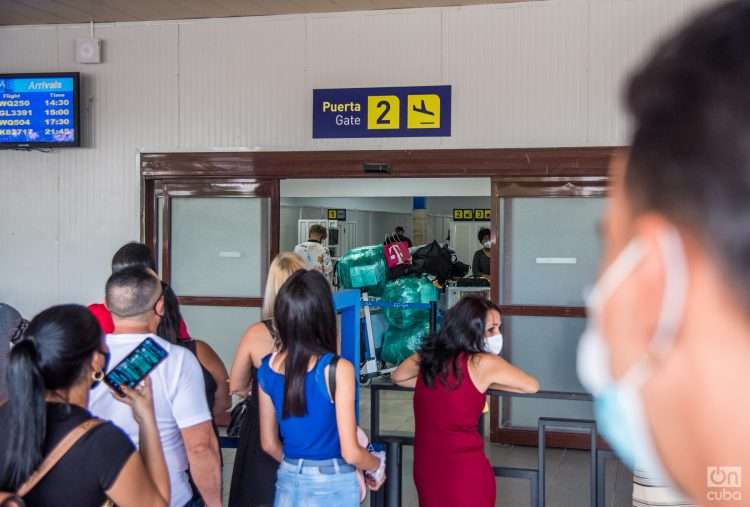The Cuban Customs authorized since August 1 the non-commercial import of power plants with more than 900 watts of power. The measure will be in force until December 31, 2022, according to official media on the island this Monday.
The Official Gazette number 53, published this September 5, includes in its extraordinary edition resolution 218/22 of the Ministry of Finance and Prices, where it is explained that the measure was taken due to the energy deficit in the residential sector caused “by the breakdowns in the national electrical system,” according to a Prensa Latina (PL) news agency report.
Para más información consulte el link que les dejamos:https://t.co/Cp4KbcAQam#AduanadeCuba #ExcelenciaEnElServicio
— Aduana de Cuba (@AduanaCuba) September 6, 2022
Due to this, “the non-commercial import of power plants with more than 900 watts of power, whose reference value in Customs exceeds the maximum value of 200 USD allowed to be imported by air, sea, postal and courier shipments of a non-commercial nature was temporarily authorized.”
In addition, a tariff rate of 30 percent will be applied for the payment of the customs tax to the excess of the load that corresponds to tax.
Cuba has been going through a delicate and complex electro-energy situation for months, marked by continuous breakages in the generating units, as well as problems with access to fuel.
These problems translate into long and continuous blackouts, which motivate social discontent and have made the issue one of the government’s priorities.
The Cuban authorities have outlined various strategies — the most recent with a view to reducing power cuts before the end of the year — but so far the crisis has not been alleviated.
Cuba: measures making non-commercial imports more flexible come into force
In August, Customs published several regulations that made individuals’ non-commercial imports more flexible, as well as modifications to customs tariffs for air, sea and postal shipments.
These measures seek to alleviate as far as possible the shortage of products suffered by the Cuban population, victim of a long-standing economic crisis, now aggravated by the impact of the pandemic, the intensification of the U.S. embargo and the little impact of a group of measures adopted by the government to overcome such a complex situation.










